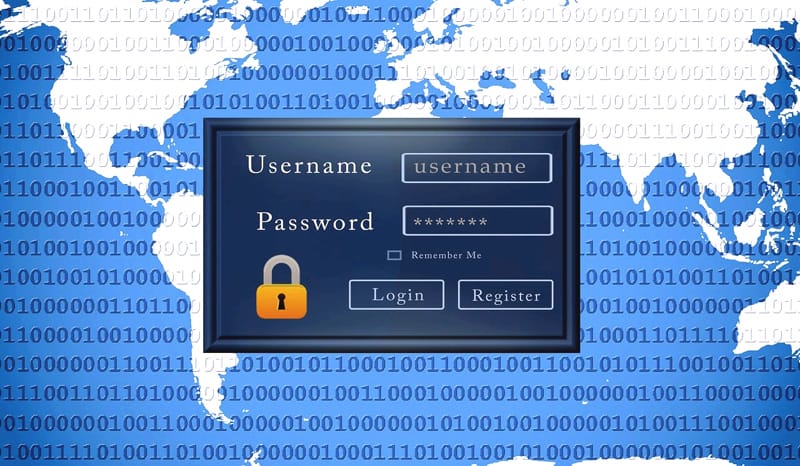Within the digital world, Internet security helps keep everything online running, probably more than you thought. This includes your data security whenever you are engaged in any online activities.
Whether you’re shopping online, sending emails, viewing a website or making crypto transactions, encryption keeps your data safe.
This is where two key technologies play a crucial role in ensuring secure data transmissions: symmetric and asymmetric encryption. These encryption methods use public and private keys (also called secret keys) to protect your sensitive information.
Being tech-savvy is no longer just a requirement for IT professionals and computer engineers. Living in the digital era means anyone should at least possess some basic understanding of common technological concepts..
So, let’s take a quick dive into the encrypted world of Internet security. Don’t worry, we will not throw you into the deep end and will keep things as shallow as possible.
What Is Symmetric Encryption?
Symmetric encryption is typically used when you need speed and it is best for encrypting large amounts of data.
In this type of encryption, one key can both encrypt and decrypt data. This means the same key locks and unlocks the information.
You can imagine it like your house key, which uses the same key to lock and unlock your door. You may pass your house key to trusted family members but certainly not to strangers. Unlike your house key however, it is not that simple to duplicate a symmetric encrypted key.
Symmetric encryption is regarded by experts to be secure for its intended use cases. However, its security heavily relies on the confidentiality of the secret key. If a hacker somehow gets access to the key, they can decrypt the data.
What Is Asymmetric Encryption?
Asymmetric encryption is regarded to be more secure and perfect for authentication and secure key exchanges.
In asymmetric encryption, a public key is shared with others but your private key is kept secret.
The public key encrypts the data, but only the private key can decrypt the data in order that the information can be plainly readable.
In this case, you can imagine the public key as a mailbox. Anyone can drop a letter to you in the public mailbox but only you can open the mailbox with your private key.
In cyberspace, the sender encrypts his message with your public key. Once the message is encrypted, only you (the recipient) can decrypt the message with your private key.
Internet Security Real World Applications
Most people are not aware of the crucial importance of symmetric and asymmetric encryptions in our modern world.
Without encryption technologies, we will not even be able to do basic tasks like use our bank cards or make online purchases. We need encryption to work properly in order that our personal data is protected.
Here are just a few examples of how encryptions protect our data.
Internet Security in Banking Transactions
Your bank card actually contains a secret key inside that’s used to sign transactions. Your bank basically verifies your identity by matching the public key with your secret key to confirm that it is you that is making the transaction.
When you use your credit card online, symmetric encryption (e.g. Advanced Encryption Standard) encrypts your card details before they are sent to the payment processor.
ATMs and banking apps also typically use symmetric encryption to protect PIN codes and transaction data.
Internet Security in Cloud Storage
Services like Google Drive, Dropbox, and OneDrive use AES encryption to secure stored files.
Even if a hacker gains access to the cloud server, they cannot read encrypted files without the secret key.
Although your cloud files are encrypted and password protected, as mentioned in my post about data security, you are ultimately still storing your files on computers that do not belong to you.
Therefore, you might want to reconsider using cloud services if you are highly concerned about data privacy.
Security of Your Wi-Fi Network
When you connect to your Wi-Fi network, high grade encryption protocols like WPA3 (Wi-Fi Protected Access 3) use symmetric encryption to prevent eavesdropping on network traffic.
Securing data that are transmitted wirelessly is highly essential because a wireless network is more susceptible to interception compared to a wired Ethernet network. The password that protects your Wi-Fi is encrypted, so it cannot be plainly read by a hacker who might be lurking around on your network.
For example, enhancing the security of your Wi-Fi network is particularly important if you live in a smart home that relies on many smart devices for your home security. You certainly do not want any unknown parties gaining access to your security video feeds.

Learn How To Defend Your Digital Life
Explore free cybersecurity courses that would build up your tech skills or even open up more career opportunities. You only pay if you need the certificate and I may get a commission as an affiliate.

Internet Security: How Encryption Works
Messaging Apps With End-to-End Encryption
Messaging services like WhatsApp and Signal use symmetric encryption (AES) for fast, secure message transmission. Your messages are encrypted before sending and decrypted on the receiver’s device using the same secret key.
It is believed that even the team at WhatsApp cannot read encrypted messages because the encryption keys are only stored on the devices of the sender and recipient. WhatsApp’s servers do not store any of the keys.
Thus, this is just one reason why you should pay heed to the security of your mobile device. Basic security steps like using a screen lock and regularly updating your operating system and apps can protect your device from hackers.
Digital Certificates and SSL/TLS in Secure Websites
When you visit a secure website where the URL is preceded by https, your browser will check the website’s SSL/TLS certificate, which uses asymmetric encryption.
Websites include a public key in their digital certificate. Your browser will use this public key to encrypt the data it sends to the web page. (e.g. personal information, login details, and credit card numbers)
Only the server’s private key can decrypt the data, thus ensuring secure communication.
Email Security – Encrypted Emails and Digital Signatures
PGP (Pretty Good Privacy) and S/MIME (Secure/Multipurpose Internet Mail Extensions) use asymmetric encryption to protect emails.
The sender encrypts the email using the recipient’s public key, and only the recipient can decrypt it with their private key.
You can further upgrade the security of your email by including a digital signature, which ensure your emails are not tampered with during transmission.
Digital signatures provide a higher level of security and authenticity compared to simple email signatures or electronic signatures. They can be particularly useful for business and legal communications.
Internet Security in Web3
Web3 applications (e.g. cryptocurrencies, blockchains and crypto wallets) primarily use asymmetric encryption, also known as public key cryptography.
When you store Bitcoin or Ethereum in a crypto wallet, each wallet has a public key (i.e. your wallet’s public address, which you can share publicly to receive cryptos). You also have a private key, which is used to securely sign transactions.
When you enter into the Web3 world, you will get constant reminders of keeping your private key secret. If someone gets access to your private key, they can steal all your cryptos without any chance of recovering them.
Secure and Automated Smart Contracts
Ethereum is on the verge, or perhaps is already revolutionizing the finance world with smart contracts.
Smart contracts use asymmetric encryption to verify users and securely execute agreements without intermediaries. Without needing middlemen, just imagine how much more simpler and speedy agreements can be.
In this case, your private key ensures security. It can be used to sign transactions and authenticate users before allowing a smart contract to be executed.
The price of Bitcoin had reached above above $100,000! Are you missing out on opportunities because you lack cryptocurrency knowledge?
You can enrol in free Bitcoin and cryptocurrency online courses with Alison. You only pay if you need the certificate and I may get a commission as an affiliate.
Conclusion
As you can see, encryption is essential for securing digital transactions, online communications, and data storage.
Symmetric encryption is fast and best for encrypting large amounts of data. Asymmetric encryption is more secure and perfect for authentication and secure key exchanges.
Together, these encryption methods power everything from online banking and cryptocurrencies to secure messaging and Web3 applications.
Now you are tech aware that encryption is everywhere! Whether you’re using a crypto wallet, online banking, or sending an email, encryption keeps your data safe!






